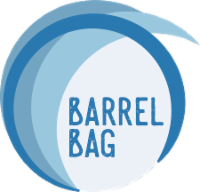California’s new plastic bills explored
Recently, California Governor Gavin Newsom has been presented with various plastic-related bills, some signed and some vetoed. What are they and how will they benefit the environment?
Each proposal being approved would be an incredible improvement for California’s population as a whole. But what are some of these bills, and what do they entail?
SB 1046 Starting in 2025, plastic bags used for produce in grocery stores will be reusable, recyclable, or compostable. The bill passed with a vote of 32-8 on the senate floor in August, and Newsom signed it in late September. However, many Californians are skeptical. Will these bags end up in the wrong (trash) bin? Only time will tell.
AB 2784 Though not approved, this bill being passed would have changed all thermoform plastics to be partly made of recycled materials. This plastic is used to be a protective shell for foods, such as a rotisserie chicken at the grocery store, as well as cups and lids. By 2025, the bill proposed that 10% of it would be made using recycled plastics, and later 30% by 2030. If this was not obtained by the companies making thermoform plastics, a debt would have to be paid. However, various fruit companies who use thermoforms opposed this. According to the LA Times, the produce organizations say that the bill is “unnecessary considering the sweeping plastics legislation the state passed earlier this summer.” As a result, Newsom vetoed this bill. The Governor called the bill’s requirements “confusing” and said it could result in “duplicative fees and penalties for the same material.”
AB 351 Finally, starting in 2027, the dead will get a chance to leave the world better than when they found it. Modeled after Washington’s human body composting law, California cemeteries and crematoriums will adopt more environmentally-friendly methods. The process involves “placing human remains in a steel box with biodegradable materials, which help the body naturally decompose” (Pew Trusts). This is then turned into soil and given to family members, who can spread it or use it to grow plants. “I’ve always hated the thought that my final act on this world would be to either pollute the air or be pumped full of toxic chemicals and buried in a vault with a huge carbon footprint,” Nick Lapis, director of advocacy for Californians Against Waste, said.
With so many plastic-related bills being approved by the Governor, our state may have a chance to influence the rest of the country. “If any one of these bills had passed, it’d have been huge,” said Nick Lapis. “But all of these together? It’s incredible.”
Written by: Ella Moseley
Sources:





